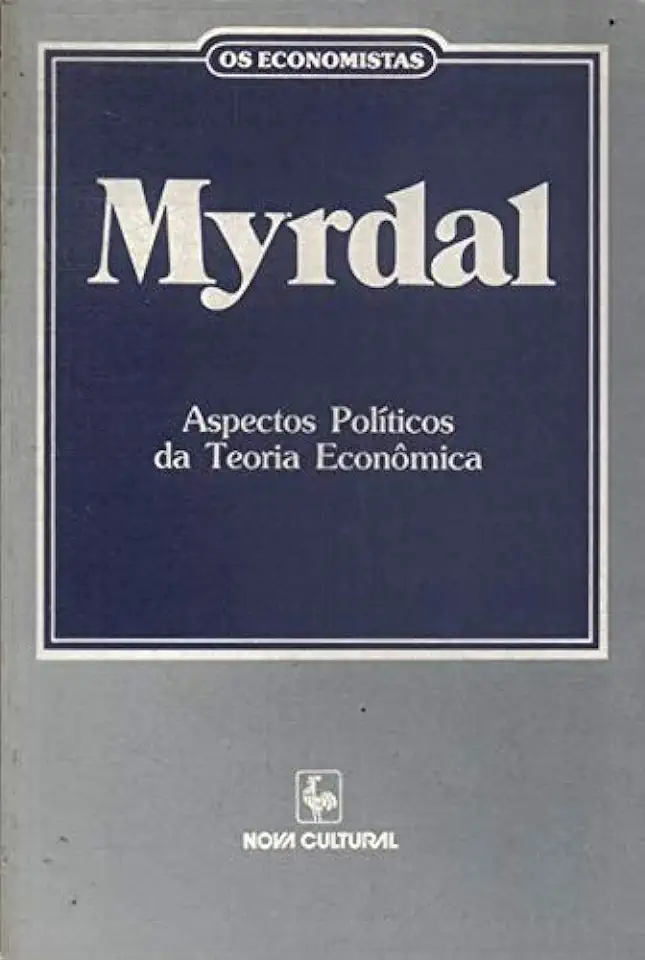
Political Aspects of Economic Theory - Myrdal
Political Aspects of Economic Theory: A Masterpiece of Economic Thought
Introduction
In his seminal work, "Political Aspects of Economic Theory," Gunnar Myrdal presents a groundbreaking analysis of the relationship between politics and economics. Myrdal argues that economic theory cannot be separated from the political context in which it is applied, and that a truly comprehensive understanding of economic phenomena requires an examination of the political forces that shape them.
Myrdal's Critique of Traditional Economic Theory
Myrdal begins by critiquing traditional economic theory for its narrow focus on the individual and its assumption of a perfectly competitive market. He argues that these assumptions are unrealistic and that they lead to a distorted understanding of how economies actually function. In reality, Myrdal argues, economic behavior is heavily influenced by political factors, such as government policies, social norms, and power dynamics.
The Role of Power in Economic Theory
Myrdal argues that power is a central concept in economic theory and that it must be taken into account in order to understand how economies actually function. He defines power as "the ability to control the behavior of others," and he argues that it is a key determinant of economic outcomes. For example, Myrdal shows how powerful economic actors, such as large corporations and wealthy individuals, can use their power to influence government policies in their favor, which can lead to unequal economic outcomes.
The Importance of Institutions in Economic Theory
Myrdal also emphasizes the importance of institutions in economic theory. He argues that institutions, such as governments, legal systems, and social norms, play a crucial role in shaping economic behavior. For example, Myrdal shows how strong institutions can promote economic growth and reduce inequality, while weak institutions can lead to economic stagnation and social unrest.
Myrdal's Policy Recommendations
Based on his analysis of the political aspects of economic theory, Myrdal proposes a number of policy recommendations to address economic inequality and promote economic development. These recommendations include:
- Increasing government intervention in the economy to regulate powerful economic actors and promote competition.
- Strengthening social welfare programs to provide a safety net for the poor and vulnerable.
- Investing in education and training to improve the skills of the workforce.
- Promoting international cooperation to address global economic challenges.
Conclusion
"Political Aspects of Economic Theory" is a must-read for anyone interested in understanding the relationship between politics and economics. Myrdal's groundbreaking analysis provides a new perspective on how economies actually function and offers valuable insights for policymakers seeking to promote economic growth and reduce inequality.
Why You Should Read This Book
If you are interested in economics, politics, or social justice, then "Political Aspects of Economic Theory" is a must-read. Myrdal's brilliant analysis of the relationship between politics and economics will challenge your assumptions about how the world works and inspire you to think critically about the economic issues facing our society.
This book is essential reading for anyone who wants to understand the complex interplay between politics and economics. Myrdal's insights are invaluable for policymakers, economists, and anyone else who wants to make a difference in the world.
Enjoyed the summary? Discover all the details and take your reading to the next level — [click here to view the book on Amazon!]